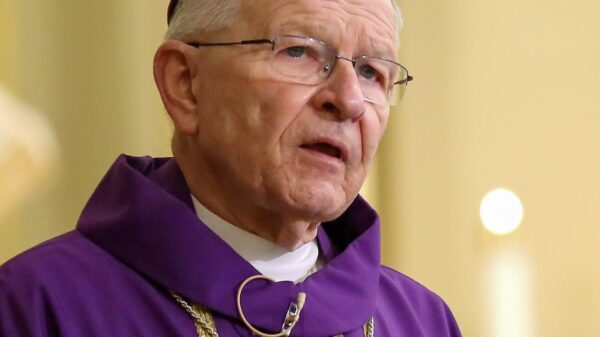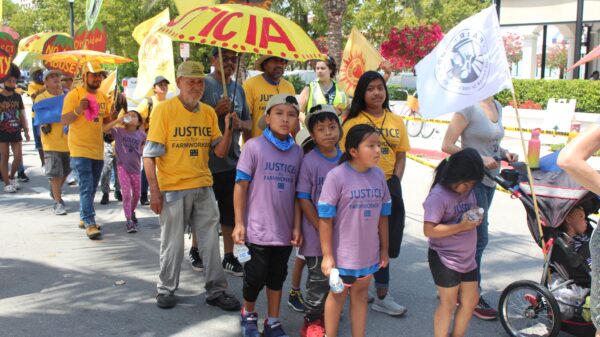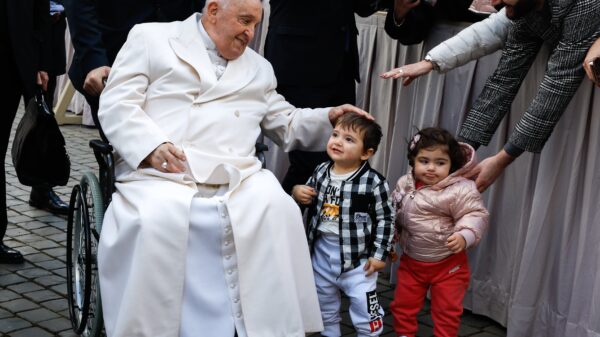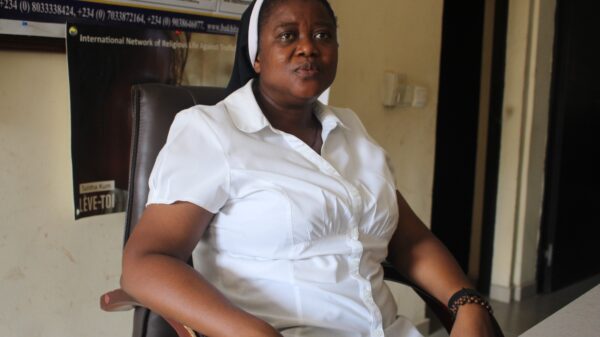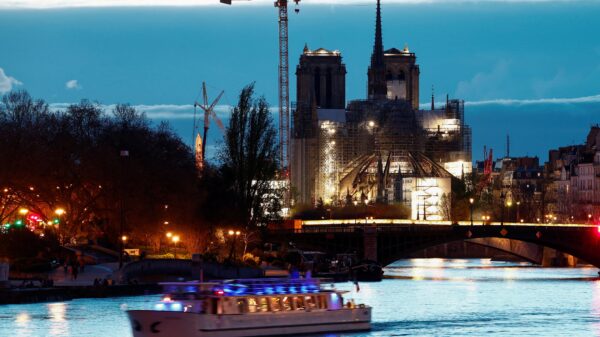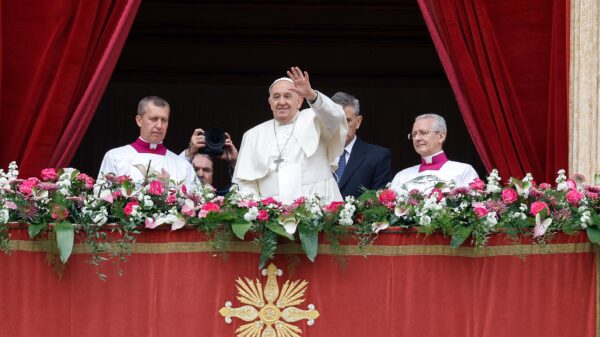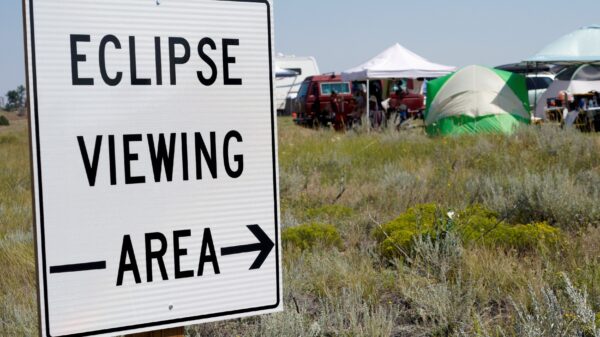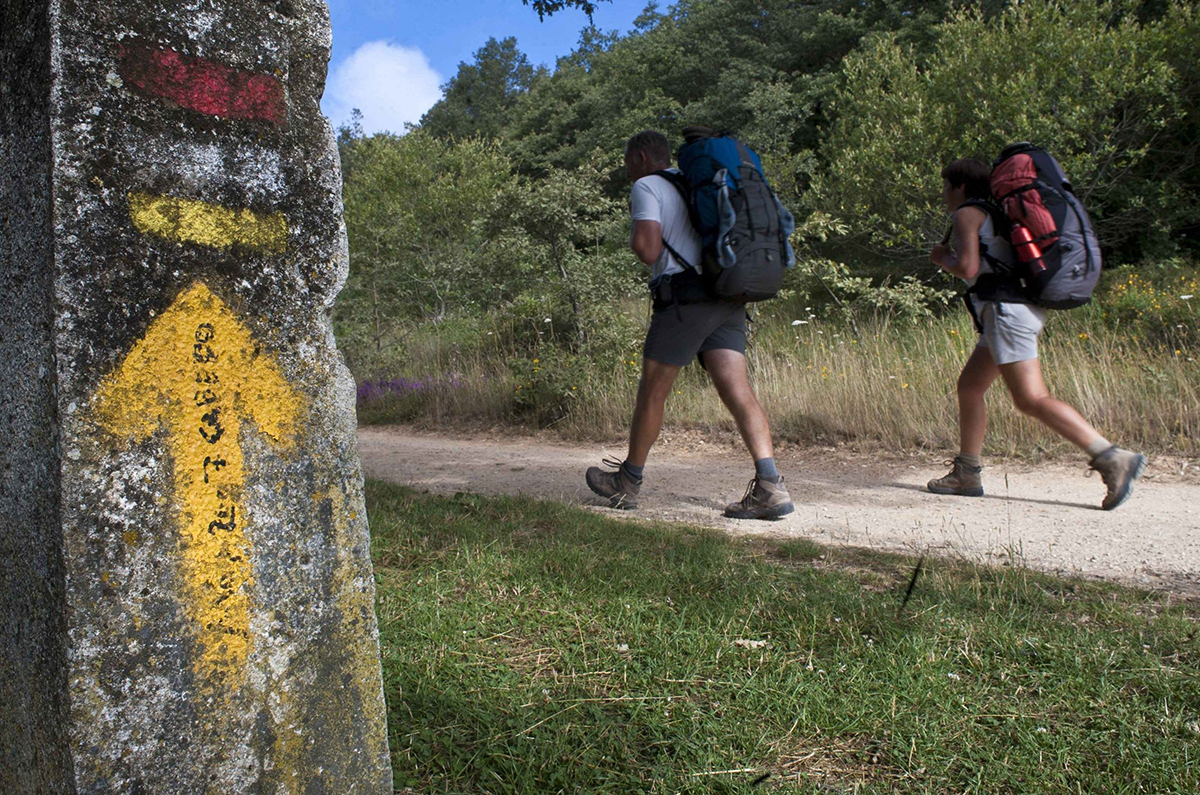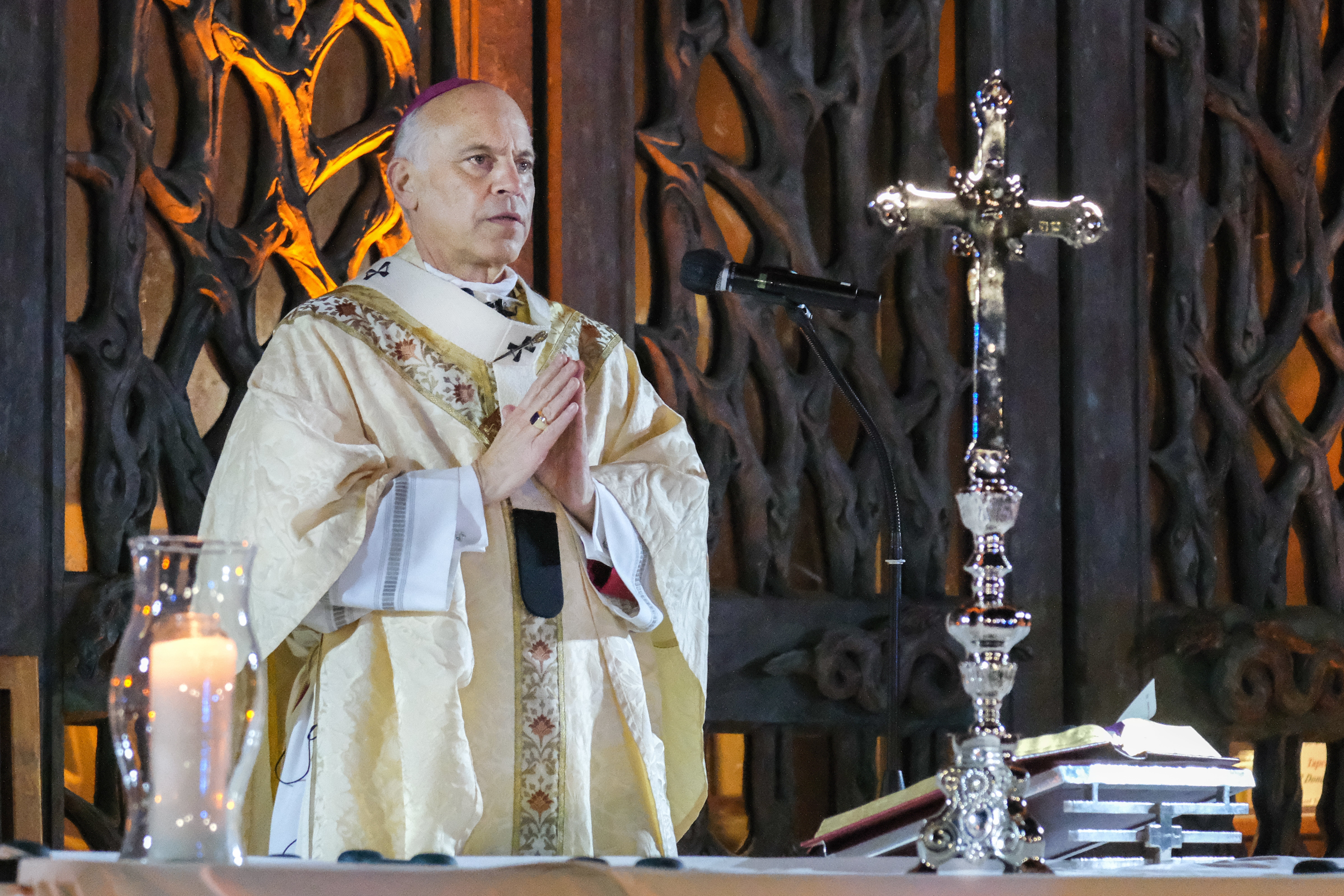(OSV News) — For Bishop James D. Conley of Lincoln, Nebraska, the greeting “Buen Camino!” (“Good path!”) is much more than friendly encouragement for a lengthy hike.
He found it also was sustenance for his soul on his pilgrimages along the El Camino de Santiago (The Way of St. James), the ancient network of at least 500 miles of roads and paths across Portugal, Germany, Italy, France and Belgium (some pilgrimage routes also launch in southern England) to the cathedral of Santiago de Compostela in Galicia in northwest Spain.
There, according to tradition, are buried the remains of St. James the Great, the fisherman who was the first of Jesus’ apostles to be martyred in 44 AD.
Bishop Conley spoke at an online press conference to promote the one-day showing of “Santiago: The Camino Within” (Ahava Productions), a documentary-travelogue from producer Erin Burghouse. It will be shown in theaters only March 28 by Fathom Events (Fathomevents.com).
Bishop Conley, who hiked a portion of it five times with Archbishop Paul S. Coakley of Oklahoma City and Bishop James S. Wall of Gallup, New Mexico, always in August, found it to be a pleasant respite from the regular noise of life, particularly online distractions.
“I’d say most people on the Camino don’t have a clue (about its origins)” he said. “Most people are doing it for whatever reason.” He called the film “so very Catholic, but in a way that’s not in your face.”
“The walk can get a bit draining,” Archbishop Coakley acknowledged, but “it opens you up” for sharing stories with other pilgrims.” He called the film “a tool for enhancing our own Lenten journey.”
The pilgrimages have gone on for more than 1,000 years after relics of St. James were first discovered, although the modern event, with hundreds of thousands of pilgrims, dates from the late 1950s when Spanish authorities began promoting it as a tourist draw, and the current interest dates only from the 1990s. Up to 300,000 have gone in a single year; like other events, it is still recovering from the worldwide COVID pandemic.
Typically, the largest amount of traffic is from April to June, then in September and October. The entire hike can take more than a month. Registered pilgrims with a credential get it stamped at stations along the way so they can get lodging in hostels. Others prefer to camp.
As with marathons, there’s a certificate of completion issued by the official Pilgrim’s Office. But not everyone receives one. Hikers have to demonstrate that the journey was undertaken for religious reasons and that the final 52 miles were done either on foot or by horseback or the last 125 miles by bicycle, and also collect enough stamps on their credential.
It is most common for hikers to take on a single route of about 200 miles, hiking 15 or so miles a day for two weeks, weather permitting. Veteran hikers take on the additional challenge of crossing the Pyrenees into Spain.
Bishop Donald J. Hying of Madison, Wisconsin, who narrates the film, said, “It has an evangelizing power to it for people who may not be religious.”
In the film, Bishop Hying says of the pilgrimage, “God has placed a homing device in our hearts so that we are born restless, never settling for less than God himself.”
The film focuses on individual hikers assessing their spiritual growth along the way, with the principal physical hazard being blistered feet.
“Perhaps there is an order and pattern to our own life that actually makes sense,” Bishop Hying concludes. “Faith is seeing the beauty of reality in the light of God’s truth.”
The best-known American drama about the pilgrimage is 2010’s “The Way,” in which Martin Sheen plays a grieving father completing the pilgrimage for his son who died en route.
In addition to the “Buen Camino!” the other traditional greeting for pilgrims is “Ultreia!” — which can be translated as “Let’s keep going” — to which the reply is “et Suseia!” In English: “Onward and upward!”
For showtimes and theaters for the March 28 showing of “Santiago: The Camino Within,” go to Fathomevents.com.
Kurt Jensen writes for OSV News from Washington.


